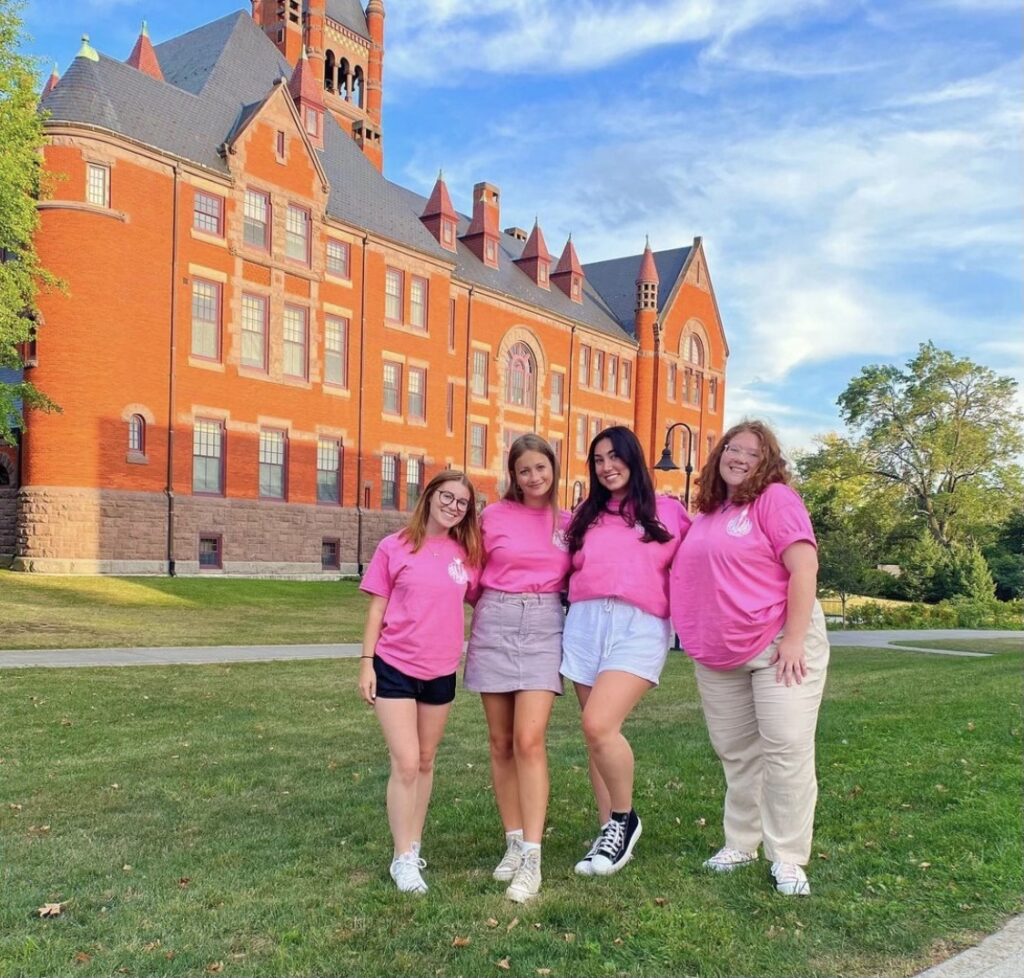Potential New Members for Sororities Have Decreased over the Past Three Years
By Alli Dayton, Managing/News Editor
This weekend, 131 students participated in Gettysburg College’s formal sorority recruitment process. Of the individuals who went through the first round of recruitment on Friday, 104 received bids to one of the College’s six Panhellenic sorority chapters.
In 2019, 191 students went through the first round of recruitment, with 151 receiving bids. In 2021, the number of potential new members going through recruitment decreased to 160, and 142 students received bids.
“You can tell we have dropped a lot,” said Assistant Director of Student Activities & Greek Life Victoria Gotwald.
Gotwald said one of the reasons for the decrease was that “Sororities and fraternities have always gone in waves of popularity.”
She explained that a similar trend occurred in the 1970s when the second wave of feminism prompted many American students to avoid sororities.
Additionally, Gotwald said, “We have a changing demographic that is coming into higher education. When you look at the demographics of students, we have a higher population of international students that are coming in.”
Gotwald discussed the challenge of explaining the role of Greek organizations to students who are unaware of the intricacies of the Greek system, specifically international students and students with no affiliated family members.
“If sororities and fraternities aren’t able to widen their network of potential new members that they could be interested in, you’re going to see this drop-off,” said Gotwald.
Gotwald also named the COVID-19 pandemic as a reason for the decrease.
“Sororities and fraternities are having to figure out how we bounce back from this. We were alone for so long.”
Gotwald stated that Greek organizations must find new ways to connect with potential new members.
Finally, Gotwald highlighted negative social media as a contributing factor. “We saw this uptick in really anti-fraternity and sorority social media,” said Gotwald. “Who wants to join something that could potentially be negative?”
Students also cited their expected cost of membership and their image of sororities as reasons they did not go through recruitment.
Juliette Rhinow ‘25 said, “I don’t want to feel like I have to pay for friends when scholarships are so limited or feel like I have to fit a certain image” regarding her decision.
Similarly, Bella Hoffman ‘24 said, “I don’t like the idea of being judged based on a quick interaction. Also, I don’t want to feel pressured to go out or feel like I have to because I spent money on it.”
“It’s truly a compound issue. There has been a steady decrease over years, and this was expected,” said Gotwald.
After observing this decrease in recruitment, Gotwald said “My hope is that we can answer some of those questions of how do we define fraternity and sorority, how do we talk about it in an effective way, and then how do our chapters get involved in a way that is talking about fraternity and sorority experience here at Gettysburg that is more than what you see on social media.”
In order to increase the number of potential new members registered for sorority recruitment, Gotwald suggested a few strategies for next year, including increased training and outreach with fraternities and sororities and increased transparency about being in a Greek organization.


September 25, 2022
You are a great writer!